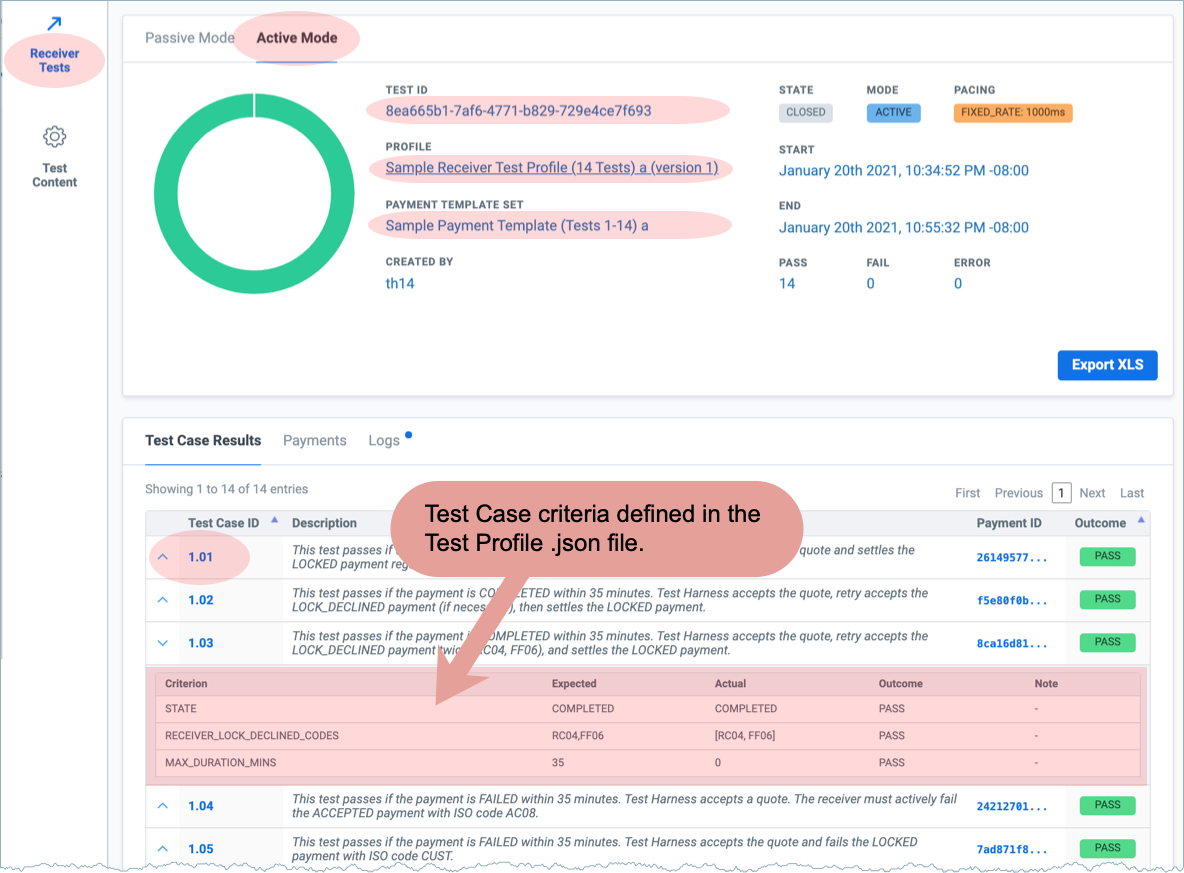This topic describes and compares Test Harness-specific terminology.
The terms sender and receiver refer to the institutions participating in a payment.
Sender tests: Payment sending institutions run "sender tests" by sending RippleNet payments with their real RippleNet Server (and integration software) to a Test Harness that simulates a payment receiver.
Receiver tests: Payment receiving institutions run "receiver tests" by receiving RippleNet payments with their real RippleNet Server (and integration software) from a Test Harness that simulates a payment originator.
The terms inbound and outbound refer to the flow of tests in relation to the Test Harness.
Inbound: Payment senders run “sender tests” that flow inbound to a Test Harness (simulating a payment receiver).
Outbound: Payment receivers run “receiver tests” that flow outbound from a Test Harness (simulating a payment sender).
Payment template set: A file in
.csvformat with records of payment data, each represented by a Test case ID. A default payment record is used for payments that don't map to a Test case ID.Project workbook: A spreadsheet used to define RPO fields and payment data in order to generate the files needed to run receiver tests.
Test ID: String that represents a set of tests run with either a test profile or project workbook.
Test case: Payment execution test represented by a test case ID, for example,
1.01.Test case ID: Any string that matches the following (configurable) regular expression:
[\\w\\.-]*, for example,TC1. A test case ID should only include letters, numbers, and the.and-characters.Test mode: Active or passive. Active mode allows users to design a suite of tests to verify multiple business workflows. For more information, see Testing basics.
Test profile: Document that defines a set of related test cases.
Test record: Dynamic record (with a test ID) of the test results for both passive and active tests.
Test type: Sender tests or receiver tests. See Sender tests vs receiver tests.
To run tests in active mode, the Test case ID must be defined within the payment's user_info and it must be prepended by TCID-. For example, if a Test Profile defines "test_case_id": "1.01" then user_info in the payment must include {"TxId":"TCID-1.01"}.
<center> Sample Test Record Demonstrating Some Terms

The Test Harness refers to a "RippleNet Payment Object" or "RPO" as a sender's payment instructions, which is typically a subset of the Standard RippleNet Payment Object. These payment instructions are the additional_info and user_info (in JSON format) added by the sender during Accept quote.
An RPO schema is a JSON schema that defines the RPO data requirements of a particular RippleNet payment receiver.
A payment receiver may use several RPO Schemas to describe the requirements for different currencies, corridors, or payment types. You can upload and select RPO schemas through the Test Harness UI.